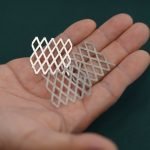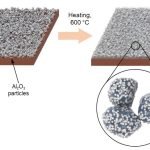James Webb Space Telescope peers into the atmosphere of a puffy, fluffy exoplanet
Exoplanets are definitely a bit of a hot topic at the moment.
Throw in a sprinkling of the James Webb Space Telescope (JWST) and you...
A galaxy only 350 million years old had surprising amounts of metal
Astrophysicists working with the JWST have found a surprising amount of metal in a galaxy only 350 million years after the Big Bang. How...
Explosions to remove World War II era munitions may pollute the seas, shows study
Decades after World War II, the ocean floor still hides a dangerous legacy: thousands of unexploded mines.
These relics not only pose a threat to...
Scientists crack the 400-year-old enigma of gold’s purple smoke
In a significant scientific breakthrough, a team from the University of Bristol has finally solved a centuries-old mystery: why does fulminating gold, an explosive...
Atomic ‘hula’ turns rare-earth crystal into magnet, shows study
Quantum materials hold the key to a future of lightning-speed, energy-efficient information systems.
The problem with tapping their transformative potential is that, in solids, the...
Scientists create ultra stainless steel: a revolutionary material for affordable hydrogen production
An engineering team from the University of Hong Kong, led by Professor Mingxin Huang, has achieved a groundbreaking development in the field of materials...
Dangerous chemical exposure linked to cancers in women
A groundbreaking study published in the Journal of Exposure Science and Environmental Epidemiology reveals a potential connection between certain chemicals and an increased risk...
New cooling glass could slash indoor heat and energy use, tackling global warming
Researchers at the University of Maryland have developed a groundbreaking "cooling glass" to fight against rising global temperatures.
This new technology, which works without electricity,...
New study reveals the hidden dangers of sex toys: microplastics
In recent research, experts have turned their attention to a surprising source of microplastic pollution: sex toys.
This study, led by Joana Sipe and Christine...
Soap holds the secret to longer-lasting batteries, shows study
Imagine your battery lasting much longer, maybe even a week on a single charge for your phone, or driving your electric car for 500...










